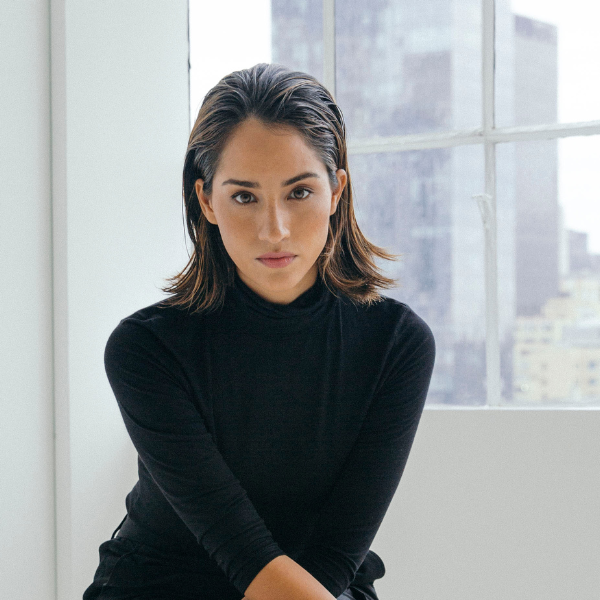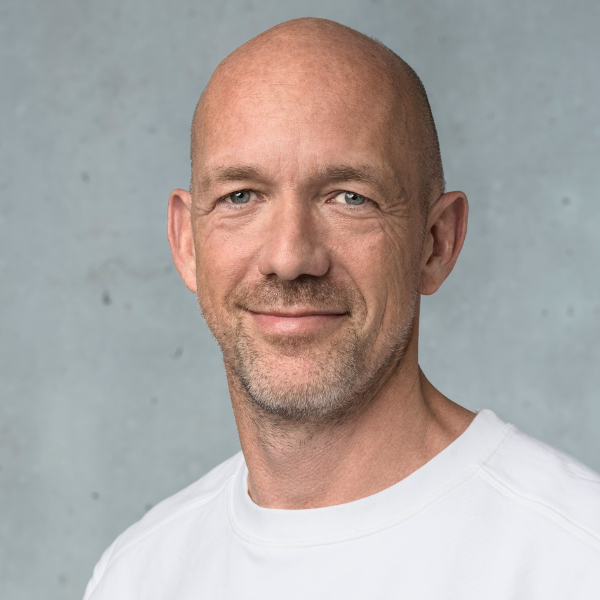
In 1986, as I prepared for life beyond graduate school, I read an article in the newspaper about plans for the San Jose Technology Museum. It sounded like a fascinating place to work. I called their office to find out about job opportunities and the person I needed to reach never seemed to be there. This was a time before email, so I called every day for several weeks, each time leaving a message. Finally I reached the hiring manager and after a brief chat was delighted to be invited in for an interview.
I arrived for the lunch meeting, sat down and opened my menu. But, before we’d even ordered, my prospective boss said, “I want to tell you in advance that you’re not a good match for this organization. You’re just too pushy.” She was referring to all the messages I had left in an attempt to reach her. I was terribly disappointed, and felt tears welling up in my eyes. I had to think fast to pull out of this tailspin.
I sat back, took a deep breath, and apologized. After I told her that I appreciated the feedback, I said that most people would call me high energy and enthusiastic, and that I had clearly misrepresented myself. Remarkably, the tension melted, we had a great conversation, and I walked away with a job offer!
Flash forward thirty years, and I find myself in a position of interviewing young people quite frequently. Now that I am on the other side of the table, it’s clear that there are lots of things you can do to increase your chances of walking out of an interview with a job offer.
In the newest LEAP! podcast on “The Art of the Interview,” we discuss how to make a positive first impression, and other interviewing tips. My guests are Stanford alumni, Tess Hatch of Bessemer Venture Partners, and Josh Reeves, co-founder and CEO of Gusto, who both conduct many interviews. Below are some interviewing tips from this podcast that I wish someone had shared with me when I was starting my career.
A mindset of learning is powerful enough to change someone’s negative bias toward you, even in a job interview.
1. An interview is a two-way conversation: Be willing to fully engage.
A great interview should be a stimulating conversation. If the interviewer asks you a question, give a relatively short answer. I promise, they will ask for more information if they want it. If you keep talking and talking and talking in response to every question, you will lose your audience, the job, and the opportunity to learn about your prospective employer.
In fact, you should view an interview as an opportunity to get to know your potential employer, not just their opportunity to get to know you. Do your homework and come prepared to ask thoughtful questions about the organization. Not only will you learn important information that will help you determine if the role is a good fit for you, but there is evidence that interviewers are more likely to have a positive response to candidates when the interviewer talks MORE than the candidate.
Practice: Prep a list of questions in advance to ask your prospective employer. Ask about the company’s goals, history, culture, and biggest challenges.
2. Pay attention to your verbal tics: Speak with confidence.
If you want a professional job, then talk like a professional. Stop sprinkling your speech with, “Like” and “Ya Know.” If you see me making tiny hash marks on your resume, it is likely that I am counting the number of times you are saying, “like.” Sloppiness in speech often reflects sloppiness in thinking, so remove these from your vocabulary to give a much better impression.
Also, don’t preface your responses with “I think…” It weakens your message considerably. For example, if asked, “What role do you usually play on a team?” don’t say, “I think that I am a leader.” Instead, say, “I am a leader.” Are you a leader, or do you just think you are? The difference is important. To support this, be specific when discussing your accomplishments. As Tess Hatch discusses in the podcast, instead of saying, “I run really fast,” say, “I run a 7 minute mile.”
Practice: Record yourself speaking for at least 2 minutes on any topic. Then, listen to notice if you have any verbal tics you need to work on removing.
3. 90 seconds is all it takes: Nail your opening
Within about a minute and a half your interviewer has made an assessment of you. If, after this short time, they have decided that you are a good candidate, then everything you say afterward will be viewed through that lens. However, if you haven’t made a positive first impression, it is likely downhill from there. So, make sure to dress appropriately, sit up straight, make eye contact, smile, and shake hands with confidence. Every little thing counts. As Josh Reeves says in our discussion, being fully present and focused makes a huge difference.
Practice: Ask a friend to role play an interview and answer the following questions: What’s your story? Why are you interested in this position? Then, evaluate your responses. Are you answering confidently, succinctly, with specifics?
4. Own your story: From special skills to gaps in your resume
You might think that the hobbies and special skills you put on the bottom of your resume are just fluff. Really, they are conversation starters. Interviewers often begin by asking you about the things you do outside of work, such as your time spent living abroad, your collection of vinyl records, or your black belt in karate. More often than not, they will find a common interest, a shared experience, or something they want to learn. Don’t miss this opportunity to connect with your interviewer.
And if you have gaps in your resume, that’s okay. Be ready to explain why. Everyone has ups and downs in their career, and it is important to be able to tell your story such that you fully explain what happened. Josh Reeves says that if you demonstrate that you learned from a disappointing experience then he and his colleagues see that as a sign of strength not weakness.
Jeannie Kahwajy, who earned her Ph.D. in the Department of Management Science and Engineering at Stanford University, is an expert on interpersonal interactions. As part of her graduate research, she did a study that shows that those who demonstrate that they are willing to learn can turn negative situations around very effectively.
Jeannie ran mock interviews where the recruiter was primed beforehand to have a negative bias toward the candidate. Of the three groups of candidates, one group was instructed to prove they should get the job, one was told to learn from the interaction, and the final group, the control, was given no specific instructions. She found that the recruiter’s negative bias was reinforced for both the control group and the group that tried to prove they should get the job. However, the candidates who set out to learn from the interaction reversed the recruiter’s negative bias. What an insight! A mindset of learning is powerful enough to change someone’s negative bias toward you, even in a job interview.
Practice: Think about the gaps in your experience or a job that didn’t go well for you. How should you tell that story? What did you learn? What would you do differently next time? Practice articulating how you’ve grown.
5. Remember — It is all subjective
With all that said, the interview process is still incredibly subjective. During hundreds of interviews I’ve managed each candidate met with two pairs of interviewers. At the end of each day we compared notes on the candidates. It was remarkable how many times our opinions were quite different. Often one pair of interviewers loved a particular candidate and the other pair was not impressed at all. This happened so frequently that I’m not surprised any more. So, keep in mind that a bad interview is just that, and gear up for the next.
6. Send a thank you note
No matter how an interview goes, it is not over until you write a thank you note. It should be a short email sent within 24 hours of the interview. This is an important opportunity to reinforce your interest in the job and to highlight something you learned during the interview. If I don’t receive a thank you note from you, I assume that you don’t want the job.
Practice: Write a polished thank you note template that you can customize after each interview. Collect business cards from each person you meet so that you can send personalized notes to each.
7. They want to want you
Remember, when you walk into an interview the interviewer wants you to be a great match for the job. They are looking to fill the position and would love to find a great match. If you are fully prepared and professional, have an engaging conversation, communicate your story well, and are ready to learn, you significantly increase the chances that you will walk out with an offer!
Parts of this article are excerpts from “What I Wish I Knew When I Was 20” by Tina Seelig.







